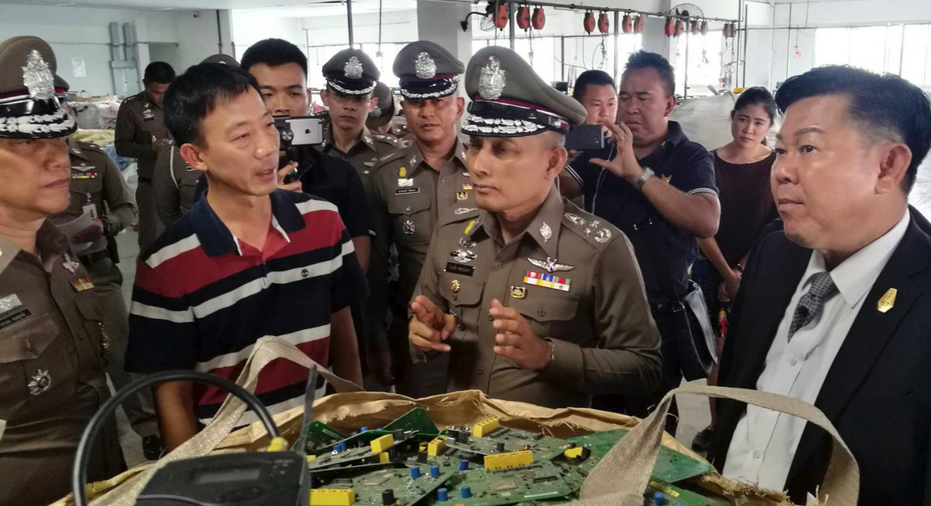Thai police probe suspected illegal e-waste recycling

BANGKOK – Thai police have raided several factories near Bangkok that allegedly were processing illegally imported electronic waste in a sign that China's crackdown on waste recycling is pushing such operations offshore.
Police and industry ministry officials said Friday that they were still investigating the case, which involves at least four factories in an industrial park in the outskirts of the capital and nearly 100 tons of electronic waste such as discarded computers, computer display screens and other items.
"These factories have not received permission to operate and will be closed pending further investigation into the cases," said Weerakit Runthakithanarat, a ministry official in Chachoengsao province, which is adjacent to Bangkok.
He said police were examining the companies' import permits and bringing in experts to determine what sorts of materials were being processed at the sites.
The police said in a statement that the factories that were raided this week were ordered to get all the waste stored outside indoors within a week. No charges had been filed yet.
Television and newspaper reports showed vast industrial sites filled with big bags of waste and big factories where workers in cloth gloves and simple face masks were taking apart the electronics equipment.
Police were questioning managers of a Taiwan company about the how the factories, which were authorized only to handle domestic recycling, obtained such large quantities of foreign e-waste. The suspicion was that they used a legal loophole allowing imports of second-hand appliances.
"Thailand does have this loophole where it allows imports of electronic goods — for reuse purposes — when in fact they are mining materials from these old machines without any regard for the environmental and health impacts," Somnuck Jongmeewasin, a professor at Silapakorn University who has done research on hazardous waste disposal, told The Associated Press.
He said Thailand had eased restrictions on such waste processing and recycling plants last year to help cope with the domestic garbage and waste problem. Instead, some factories are using the opportunity to illegally process waste from overseas.
Somnuck said the government lacks the capacity to adequately regulate such facilities. The police raids followed complaints from residents living near the factories over bad smells, overflowing waste and burning sensations on their skin.
For years, Chinese waste processors, often working in extremely hazardous conditions, have handled a huge share of the world's waste. Under a law that took effect Jan. 1, China banned the import of 24 types of waste, leaving many exporters hamstrung over how to cope with the accumulating trash.
The waste processing facilities were employing mostly migrant workers from Myanmar, officials said.



















